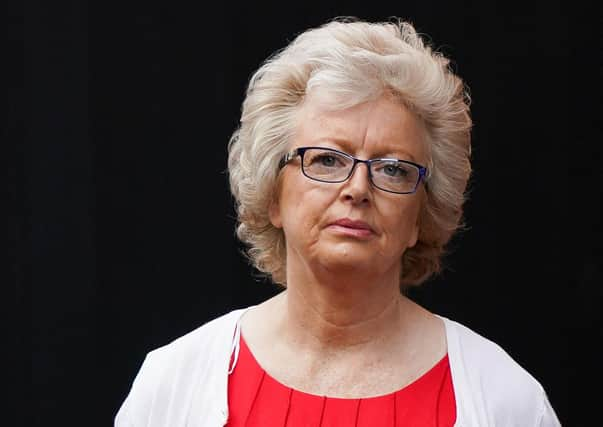Birmingham pub bomb victim’s sister in court for breach of virus rules


Ms Hambleton has gone on trial at Birmingham Magistrates’ Court alongside three other men, accused of attending a gathering “of more than two people” during an event to commemorate the blasts’ victims.
All four attended a motor rally through Birmingham, on November 21 last year, to mark the 46th anniversary of the double IRA blasts, which claimed 21 lives, including Miss Hambleton’s older sister, Maxine.
Advertisement
Hide AdAdvertisement
Hide AdMs Hambleton, 58, who leads the Justice 4 the 21 (J421) group, and her co-defendants deny any wrongdoing at the event, held amid the second national lockdown.
The 58-year-old of Crossway Lane; Kevin Gormley, 53, of Beacon Road; Michael Lutwyche, 54, of Hayes Grove; and John Porter of Corner Way, 59, all of Birmingham, are being prosecuted after refusing to pay fixed penalty notices.
It is alleged by prosecutors that there was a “clear and deliberate” breach of the rules after between 15 and 25 protesters, including all four defendants, got out of their vehicles at the end of the rally, outside West Midlands Police’s Birmingham headquarters, Lloyd House.
The trial has heard evidence that West Midlands Police was aware of the rally, had officers present and had at the time been following a nation-wide approach to policing the lockdown, namely the four Es; engage, explain, encourage and enforce.
Advertisement
Hide AdAdvertisement
Hide AdEarlier on the day of the protest, all four defendants had got out their vehicles in Bromsgrove Street, where there is a city mural to the victims, where Ms Hambleton told a police officer they were “just going to take a photo”.
Chief Inspector Richard Cox, who was on the scene, told Ms Hambleton: “The number of people gathering outside of vehicles is a concern so if we could get people back in vehicles, that would be great.”
Mr Cox later radioed his senior commander Chief Superintendent Andy Parsons, telling him “it is a really sensitive issue, it doesn’t feel appropriate for us to intervene at the moment.”
Asked by the prosecutor if any “formal order to disperse” was issued to the group, Mr Cox replied: “No”, adding: “I didn’t think that would be well received, with the day (of the anniversary).”
Advertisement
Hide AdAdvertisement
Hide AdIn his evidence, Mr Parsons said he carried out a post-incident review of body-worn footage and other evidence to assess whether any enforcement action would be needed.
In the course of that review a colleague, raised the issue about the “lack of challenge of the four Es” by Mr Cox on the ground to the defendants, in an email dated November 30, 2020. That review also pointed out that none of those subsequently prosecuted had been spoken to directly by police outside Lloyd House.
District Judge Shamim Qureshi addressed Mr Cox and contrasted the force’s decision not to fine any of the thousands who attended Canon Hill Park in breach of the Rule of Six in March 2021, with those on trial.
He asked: “I’ll tell you how it looks… it seems a bit of an easy target so was there any need to prosecute in this case?” The trial continues.